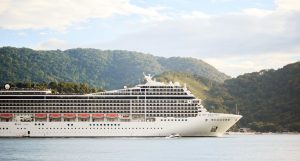Following several tourist injuries and at least one death, a Bahamian-headquartered cruise line docking in the Port of Miami is being sued by multiple plaintiffs who say they encountered an unreasonable risk of danger at an on-shore zip line excursion in Honduras. As with many excursions advertised by large cruise lines, this one was offered by a third-party independent contractor. However, plaintiffs allege firstly they were misled in marketing materials to believe the cruise line itself was the operator. Furthermore, these tourists say the cruise company should have known the zip line excursion wasn’t safe because numerous cruise ship guests suffered tourist injuries on it. Miami tourist injury attorneys know that if they can prove both of these elements, they may have a decent shot at recovering damages for their injuries.
In July, a newlywed groom on that zip line crashed into his brand new bride, suffering serious injuries that proved fatal. The Miami New Times reports that prior to that incident, there were at least 10 people who sustained severe injuries while on the excursion facilitated by Royal Caribbean, which received complaints after each incident.
Zip lining is arguably one of those recreational activities, such as rock climbing or mountain biking or snow skiing, that by their very nature present some sort of risk of an accident or injury. Defendants will often argue the “assumption of risk” doctrine, meaning they assumed the inherent risk when they chose to do that activity anyway. Such assertions can be especially bolstered if the claimant signed a waiver of liability. Such waivers don’t completely shield defendants from liability (particularly for gross negligence), but they can be useful for the defense. However, in the case of this Honduran-based excursion, the numerous federal lawsuits indicate a pattern of problems that went beyond what one might assume while zip lining. Rather, the allegations are that this particular zip lining excursion was especially dangerous – even for zip lining – and that Royal Caribbean knew about it yet failed to protect future guests from being hurt either by terminating their contract with the zip lining company or warning guests of the potential dangers or prior accidents. Continue reading

 Broward Injury Lawyer Blog
Broward Injury Lawyer Blog










